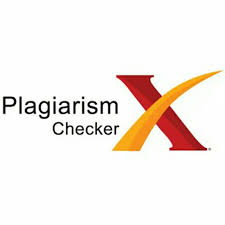PENGARUH PEMBERIAN TEPUNG BELUT (MONOPTERUS ALBUS) DENGAN KADAR BERTINGKAT TERHADAP PROSES PENYEMBUHAN LUKA PADA TIKUS (RATTUS NORVEGICUS) ALBINO JANTAN YANG DI LUKAI
Keywords:
Eel Flour, Protein, Wound Healing, Rats (Rattus Norvegicus)Abstract
Injury is a discontinuity of a tissue, it is known that the incidence of injury has a prevalence reaching millions of cases / year. Some nutritional components become important factors in the wound healing process including protein and collagen. Protein acts as a regeneration of damaged body tissue. Collagen has the ability of hemostasis, interaction with platelets, interaction with fibronekin, increasing cellular components. Protein sources that researchers take are eels (Monopterus Albus). This study aims to determine the effect of giving eel flour (Monopterus Albus) to the wound healing process in male albino rats (Rattus Norvegicus) which were injured.This study used an experimental method with a Post Test Control Group Design design using experimental animals namely male albino rats (Rattus Norvegicus) divided into 4 groups. The control group without giving eel flour, P1 at a dose of 50 mg, P2 at a dose of 100 mg, and P3 at a dose of 200 mg.From the One Way ANOVA test there was an effect of giving eel flour (Monopterus Albus) to the wound healing process with a p-value of 0,000. Then proceed with the LSD test to find out the significance between groups namely control with P1, control with P2, control with P3, P1 with P2, P1 with P3 and P2 with P3 with p-value 0,000. The mean of wound healing in all groups is control 12.33, P1 9.50, P2 7.67, and P3 5.67.Based on the research results obtained it can be concluded that the content of eel flour (Monopterus Albus) namely protein and collagen can accelerate the wound healing process and the higher the dose of eel flour is given, the faster the wound healing process.Further testing on humans is needed as an effort in the process of wound healing.










